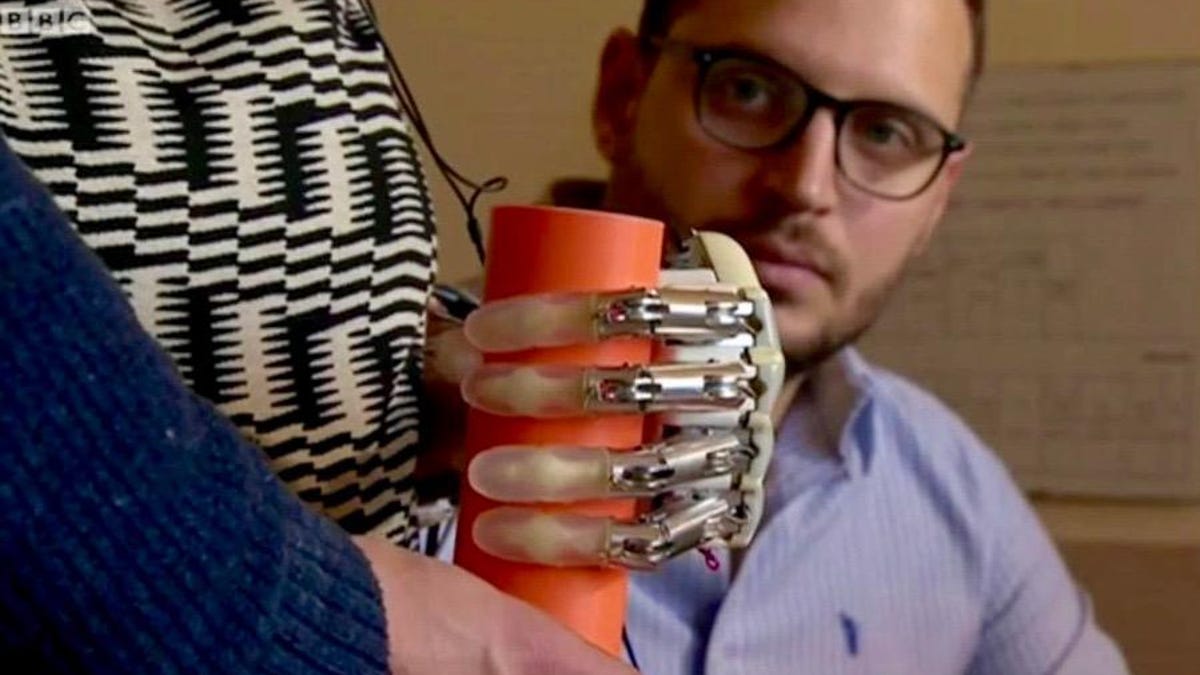Bionic hand with sense of touch can be worn outside the lab
New bionic hand that lets people sense their prosthetic fingers can now be worn in the wild.
Bionic limbs have evolved dramatically over the years to include mind-controlled arms and artificial hands that "feel" via something called M.A.S.S. Impact (Muscle Activity Sensor Strip), which uses an armband filled with pressure sensors to track movements in a user's remaining muscles.
For the first time, this bionic hand that has a sense of touch can be worn outside the lab. Previously, the computer that helped to operate the bionic hand was too large to leave the lab, but now that technology is small enough to be portable.
Rome-based Almerina Mascarello is the recipient of the latest in neuroprosthetics. Her new prosthetic hand uses sensors that detect whether an object is soft or hard.
The data from the hand is sent to a portable computer that converts these signals into a language the brain will understand, according to a BBC report Wednesday. That information is then transmitted to the human brain via tiny electrodes implanted in nerves in the upper arm.
Engineers, neuroscientists, surgeons and robotics experts from Italy, Switzerland and Germany are behind the hand. While the technology is impressive, and the sensory bionic hand can finally be worn outside, the scientists responsible for the invention are hoping to miniaturize the sensors even more to give the hand additional feeling sensations.
"Once you can control a robotic prosthesis with your brain you can think about creating one that allows more complex movements than a hand with five fingers," Professor Paolo Rossini, a neurologist at University Hospital Agostino Gemelli in Rome, told the BBC.


